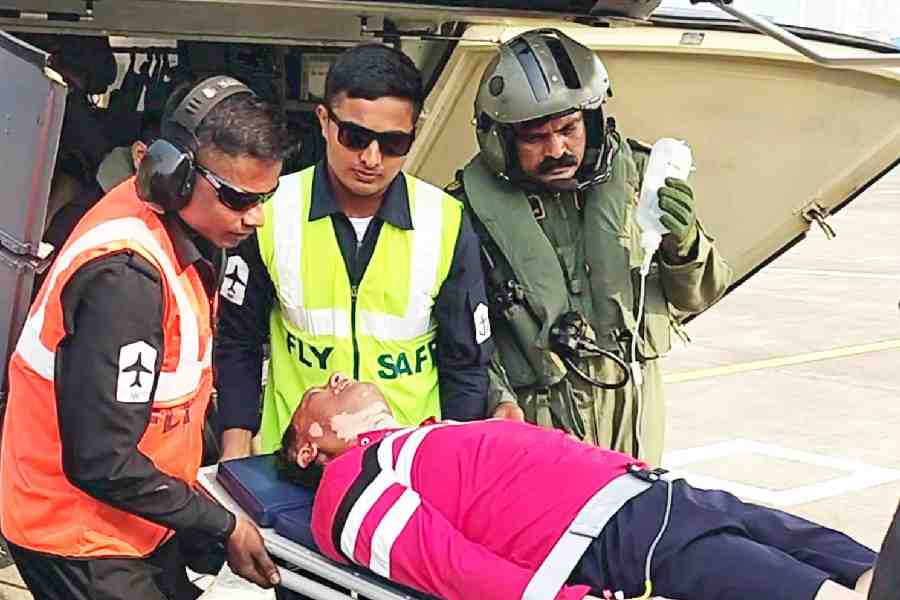 Sunday, 03 November 2024
Sunday, 03 November 2024
 Sunday, 03 November 2024
Sunday, 03 November 2024
New Delhi accused Ottawa of harassing and intimidating consular staff and warned that absurd claims against Union home minister Amit Shah will have serious consequences while Canada put India on its cyberthreat adversaries list as the diplomatic standoff between the two countries escalated further on Saturday.
The bilateral relationship has gone south since Prime Minister Justin Trudeau said a year ago that Canada had evidence that agents of the Indian government were involved in the murder of Canadian Sikh activist Hardeep Singh Nijjar in British Columbia in June 2023.
It plummeted after Canada’s deputy foreign minister David Morrison recently told a parliamentary committee in that country that Shah had orchestrated intimidation and violence against Sikh separatists in Canada.
Morrison also said he had confirmed Shah’s role to The Washington Post following questions on India’s involvement in the killing of Nijjar.
India – as it steadfastly has – dismissed the charges against Shah as absurd.
India: Charges against Amit Shah absurd, baseless
India has protested in the strongest possible terms the references made by the Canadian minister about Union home minister Amit Shah and warned that such "absurd and baseless" allegations will have serious consequences for bilateral ties, the Ministry of External Affairs spokesperson said.
At the ministry’s weekly media briefing, spokesperson Randhir Jaiswal said the revelation that high Canadian government officials deliberately leaked unfounded insinuations to international media as part of a conscious strategy to discredit India and influence other nations only confirms the view that the Indian government has long held about the current Canadian government's political agenda and behavioural pattern.
Replying to queries, Jaiswal said such irresponsible actions will have serious consequences for bilateral ties.
He said India summoned a Canadian High Commission representative on Friday and the official was served a diplomatic note to lodge the protest in strongest terms on the "absurd and baseless" references made by the Canadian deputy minister about India's home minister.
While addressing the Australian Parliament members, Morrison did not say how Canada knew that Shah was involved.
India: Canada surveilling consular staff against diplomatic conventions
MEA spokesperson Randhir Jaiswal also accused Canada of indulging in "harassment and intimidation" of Indian consular staff in that country by putting them under audio and video surveillance in "flagrant violation" of diplomatic conventions.
Responding to a query during the media briefing, Jaiswal said India has "formally protested" to the Canadian government.
He was asked about reports claiming that many Indian diplomats in Canada were allegedly under surveillance amid the diplomatic standoff.
"Yes, some of our consular officials were recently informed by the Canadian government that they have been and continued to be under audio and video surveillance,” Jaiswal replied. “Their communications have also been intercepted. We have formally protested to the Canadian government, as we deem these actions to be in flagrant violation of relevant diplomatic and consular conventions.”
He added: "By citing technicalities, the Canadian government cannot justify the fact that it is indulging in harassment and intimidation.”
India cites ‘environment of extremism and violence’
India maintains that the main issue between the two countries is that of Canada giving space to pro-Khalistan elements operating from Canadian soil with impunity.
India has expelled six Canadian diplomats and withdrawn its high commissioner Sanjay Verma and other "targeted" officials from Canada after strongly dismissing Ottawa's charges.
"Our diplomatic and consular personnel are already functioning in an environment of extremism and violence. This action of the Canadian government aggravates the situation, and is incompatible with established diplomatic norms and practices," Jaiswal said.
Canada puts India in cyberthreat list, says Delhi is 'likely' spying
Canada for the first time named India in a list of cyberthreat adversaries.
India is named fifth after China, Russia, Iran and North Korea in the National Cyber Threat Assessment 2025-2026 (NCTA 2025-2026) report.
“We assess that Indian state-sponsored cyber threat actors likely conduct cyber threat activity against Government of Canada networks for the purpose of espionage,” the report said.
The NCTA 2025-2026 that highlights the cyber threats facing individuals and organisations in Canada was released on October 30 by the Canadian Centre for Cyber Security (Cyber Centre), which is Canada’s technical authority on cyber security, and part of the Communications Security Establishment Canada (CSE).
There was no mention of India in these reports in the years 2018, 2020 and 2023-24.
India on same list as China, Russia, North Korea
The 2025-26 assessment mentions India – along with China, Russia, Iran and North Korea -- in the 'Cyber threat from state adversaries' section that introduces the state cyber threat ecosystem and discusses the cyber threats to Canada.
“India’s leadership almost certainly aspires to build a modernised cyber programme with domestic cyber capabilities. India very likely uses its cyber programme to advance its national security imperatives, including espionage, counterterrorism, and the country’s efforts to promote its global status and counter narratives against India and the Indian government,” the assessment report said.
“We assess that India’s cyber programme likely leverages commercial cyber vendors to enhance its operations. We assess that Indian state-sponsored cyber threat actors likely conduct cyber threat activity against Government of Canada networks for the purpose of espionage,” it said.
“We judge that official bilateral relations between Canada and India will very likely drive Indian state-sponsored cyber threat activity against Canada,” it claimed.
CSE and its partners in Canada and across the Five Eyes are attuned to the cyber threats to Canada from state and nonstate cyber threat actors and are tracking them as they evolve, the report said.
NCTA 2025-2026 provides the Canadian public with CSE’s current insights on the state and non-state cyber threat actors conducting malicious cyber threat activity against Canada and how we assess the cyber threat landscape will evolve in the next two years, it added.







